Dairy farm expansion – electrical considerations
When planning to expand your dairy farm, you need to factor in that you will need an increased supply of electricity because of the addition of new electrical equipment. When making such a large investment, it is essential that you plan for the additional costs involved in upgrading your electricity supply, as well as the electrical equipment and enclosures that you as the customer must provide. Always use the best possible professional advice by engaging an electrical consultant or contractor at the very start of the planning phase.
It may be that the supply connection is required for a new location but the same requirements will apply.
Timing is very important because there can be appreciable lead times involved. Consult ESB Networks immediately and start the process by completing the application form. You will find all the information you need on our website: www.esbnetworks.ie.
Alternatively, ring ESB Networks at 1850 372 757. Once payment is received, we will typically be in a position to complete our work within 12 weeks of receiving payment. This can be longer in some cases and is subject to way leaving of other parties.
Safety
When planning your extension, you need to identify if there are electrical risks that you need to manage safely. If there are overhead electricity lines or underground cables in the area, you must notify ESB Network. It may be necessary to re-locate them so that the construction work can proceed safely.
Never build near overhead electricity wires and always STAY SAFE and STAY CLEAR.
There are no second chances with electricity. In an emergency, phone 1850 372 999. Please read the ‘Farm safely with Electricity’ booklet, available at www.esbnetworks.ie
At all times, ensure that hazards are identified and properly managed. Remember, the main hazards on a farm are vehicles, machinery and livestock. Children and older people are the most at risk groups. With the summer holidays, make sure the farm is safe for all, including visitors.
Your electrical
requirements
You should discuss your electrical needs with your electrical consultant or contractor who will determine what the correct network capacity is for your requirements. This is the Maximum Import Capacity or MIC. Your electrical installation must also comply with the national wiring regulations.
The type of electricity supply connection you need depends on what your demand for power is.
The table below explains the different types.
Notes
1 MIC: Maximum import capacity is the limit on your electricity supply, based on the available power, the size of the meter and feeding cable; e.g. the 80A whole current meter.
Many farmers would have started with a supply capacity based on a standard domestic supply, (eg 16kVA) and then progressed to 29kVA, including replacing the feeding cables with the largest possible single-phase service cable and replacing the 80amp whole current meter with a ratio-based meter, known as Current Transformer (CT) metering. This involves more specialist equipment and enclosures.
2 Three-phase versus single-phase power: Low voltage single-phase (230v) is a two-wire system made up of a phase and a neutral.
Low voltage three-phase (400v/230v) is a four-wire system made up of three phases and a neutral.
Three-phase power, where it is required, is a much more efficient system because motors are smaller, more reliable, etc. Essentially, a three-phase supply gives you three-times more power because you have three phases instead of a single phase and the voltage is increased from 230v to 400v. Moving to three phase can be the most appropriate and best decision. You need to take professional advice and apply to ESB Networks at the very start because there will be a significant lead time in planning and installing the upgraded electrical network.
3 Larger cable size and PVC ducting: The larger underground service cable requires to be installed in a 125m (5’) duct .
Location for the metering equipment
There are important requirements for the equipment used to house the meter and the termination of the incoming supply. This intake point will be at the milking parlour, so that it is nearest to the largest electrical loads.
These enclosures and equipment must be IP rated with a minimum value of IP 55. Typically, IP 65 rated equipment is used. This means dust tight and protected against water projected from a nozzle. Your electrical consultant and contractor will be familiar with the electrical requirements. Metering equipment must be installed in an outdoor-approved enclosure and be easily accessible at all times.
Standby generators – special rules apply:
Standby generators are a convenient source of electricity in emergency and storm situations, when the ESN Networks supply is temporarily unavailable.
Special rules apply including a proper change-over switch. Your electrical contractor will advise you.
Step one – complete application
Apply online or call 1850 372 757 or +353 21 2386555.
Tip: make sure to tick the box “Increased Supply” and quote the MPRN for your connection.
Send the completed application form to:
ESB Networks DAC,
New Connection Applications,
Sarsfield Road,
Wilton, Cork.
T12E367.
Step two – site visit and quotation
When ESB receive your application they will reply with an acknowledgement with your job number. A site visit and written quote will follow.
Step three – check if you need to upgrade your
electrical equipment, including a new switch board
With the increase in your supply, you will need to upgrade your main switch board so it can carry the increased load. Always consult your electrical consultant/contractor.
A Safe Electric electrical completion certificate must be provided by your electrical contractor and received by ESB before the final connection can be made.
Step four – make a payment
Once you have your quote there are a number of ways to pay. Details are available at www.esbnetworks.ie and you will receive this information with your quotation.
Step five – completion of work
Once your payment is received, ESB will complete the necessary work to increase your supply to the new MIC.
Dairy farm expansion – electrical considerations
When planning to expand your dairy farm, you need to factor in that you will need an increased supply of electricity because of the addition of new electrical equipment. When making such a large investment, it is essential that you plan for the additional costs involved in upgrading your electricity supply, as well as the electrical equipment and enclosures that you as the customer must provide. Always use the best possible professional advice by engaging an electrical consultant or contractor at the very start of the planning phase.
It may be that the supply connection is required for a new location but the same requirements will apply.
Timing is very important because there can be appreciable lead times involved. Consult ESB Networks immediately and start the process by completing the application form. You will find all the information you need on our website: www.esbnetworks.ie.
Alternatively, ring ESB Networks at 1850 372 757. Once payment is received, we will typically be in a position to complete our work within 12 weeks of receiving payment. This can be longer in some cases and is subject to way leaving of other parties.
Safety
When planning your extension, you need to identify if there are electrical risks that you need to manage safely. If there are overhead electricity lines or underground cables in the area, you must notify ESB Network. It may be necessary to re-locate them so that the construction work can proceed safely.
Never build near overhead electricity wires and always STAY SAFE and STAY CLEAR.
There are no second chances with electricity. In an emergency, phone 1850 372 999. Please read the ‘Farm safely with Electricity’ booklet, available at www.esbnetworks.ie
At all times, ensure that hazards are identified and properly managed. Remember, the main hazards on a farm are vehicles, machinery and livestock. Children and older people are the most at risk groups. With the summer holidays, make sure the farm is safe for all, including visitors.
Your electrical
requirements
You should discuss your electrical needs with your electrical consultant or contractor who will determine what the correct network capacity is for your requirements. This is the Maximum Import Capacity or MIC. Your electrical installation must also comply with the national wiring regulations.
The type of electricity supply connection you need depends on what your demand for power is.
The table below explains the different types.
Notes
1 MIC: Maximum import capacity is the limit on your electricity supply, based on the available power, the size of the meter and feeding cable; e.g. the 80A whole current meter.
Many farmers would have started with a supply capacity based on a standard domestic supply, (eg 16kVA) and then progressed to 29kVA, including replacing the feeding cables with the largest possible single-phase service cable and replacing the 80amp whole current meter with a ratio-based meter, known as Current Transformer (CT) metering. This involves more specialist equipment and enclosures.
2 Three-phase versus single-phase power: Low voltage single-phase (230v) is a two-wire system made up of a phase and a neutral.
Low voltage three-phase (400v/230v) is a four-wire system made up of three phases and a neutral.
Three-phase power, where it is required, is a much more efficient system because motors are smaller, more reliable, etc. Essentially, a three-phase supply gives you three-times more power because you have three phases instead of a single phase and the voltage is increased from 230v to 400v. Moving to three phase can be the most appropriate and best decision. You need to take professional advice and apply to ESB Networks at the very start because there will be a significant lead time in planning and installing the upgraded electrical network.
3 Larger cable size and PVC ducting: The larger underground service cable requires to be installed in a 125m (5’) duct .
Location for the metering equipment
There are important requirements for the equipment used to house the meter and the termination of the incoming supply. This intake point will be at the milking parlour, so that it is nearest to the largest electrical loads.
These enclosures and equipment must be IP rated with a minimum value of IP 55. Typically, IP 65 rated equipment is used. This means dust tight and protected against water projected from a nozzle. Your electrical consultant and contractor will be familiar with the electrical requirements. Metering equipment must be installed in an outdoor-approved enclosure and be easily accessible at all times.
Standby generators – special rules apply:
Standby generators are a convenient source of electricity in emergency and storm situations, when the ESN Networks supply is temporarily unavailable.
Special rules apply including a proper change-over switch. Your electrical contractor will advise you.
Step one – complete application
Apply online or call 1850 372 757 or +353 21 2386555.
Tip: make sure to tick the box “Increased Supply” and quote the MPRN for your connection.
Send the completed application form to:
ESB Networks DAC,
New Connection Applications,
Sarsfield Road,
Wilton, Cork.
T12E367.
Step two – site visit and quotation
When ESB receive your application they will reply with an acknowledgement with your job number. A site visit and written quote will follow.
Step three – check if you need to upgrade your
electrical equipment, including a new switch board
With the increase in your supply, you will need to upgrade your main switch board so it can carry the increased load. Always consult your electrical consultant/contractor.
A Safe Electric electrical completion certificate must be provided by your electrical contractor and received by ESB before the final connection can be made.
Step four – make a payment
Once you have your quote there are a number of ways to pay. Details are available at www.esbnetworks.ie and you will receive this information with your quotation.
Step five – completion of work
Once your payment is received, ESB will complete the necessary work to increase your supply to the new MIC.



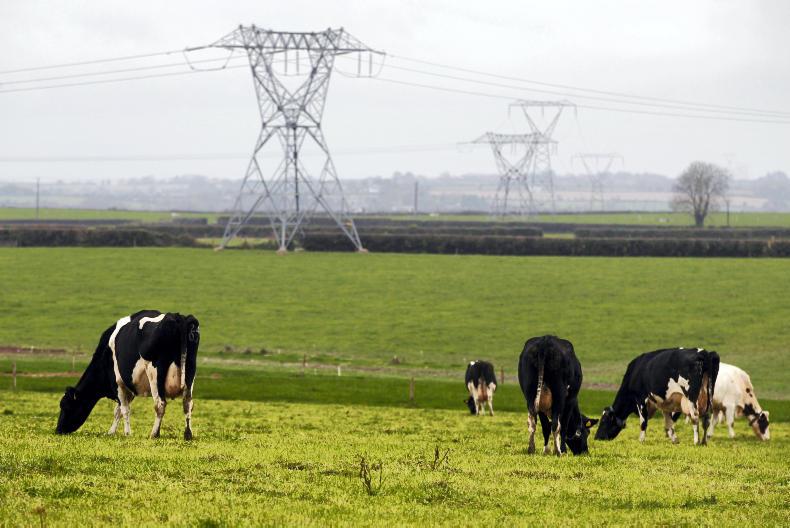

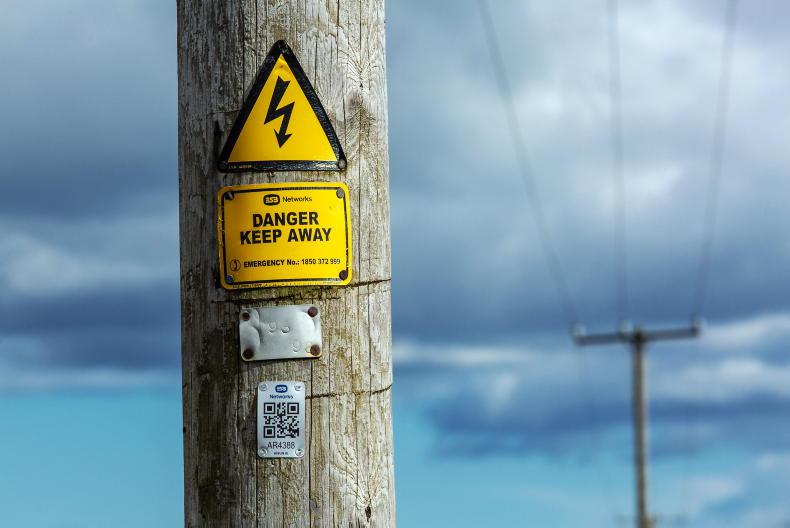

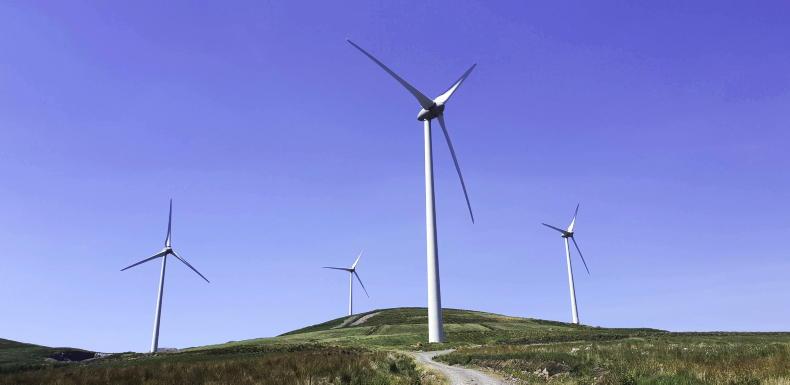
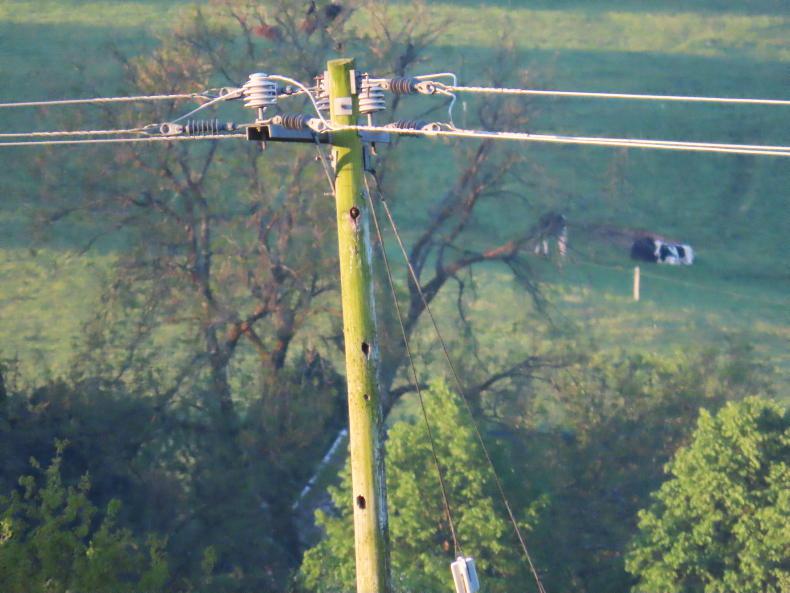
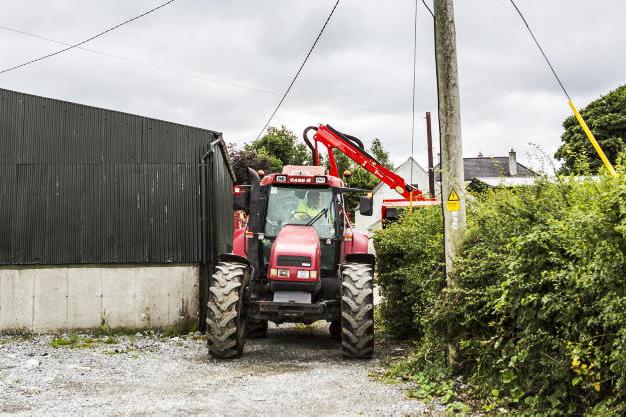
SHARING OPTIONS